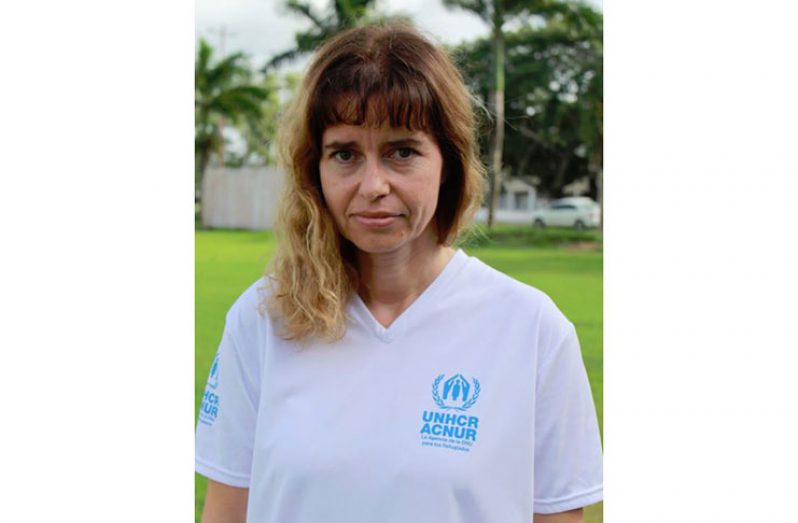SOME Venezuelan immigrants are now being registered through a digitalised system that integrates biometric technologies, which allows them to acquire a registration certificate replete with a three-month stay permit granted by the Government of Guyana.
This system, initiated by the local office of the United Nations High Commissioner for Refugees (UNHCR) after a provisional approval was granted by the government in Mid-October, allows for the registration of migrants to move away from a manual system of paper sheets.
While the UNHCR established its local office only in 2018, its Senior Liaison Officer, Cecilie Saenz Guerrero noted, “We have, this year, been focusing on some specific sectors, one of them has been to enable Venezuelans coming here to register in a digitalised system which is called the Prime system.”
She explained that through this system, immigration officers, supported by UNHCR staff, would collect biodata in a biometric system. What this means is that certain unique characteristics of an individual– their fingerprints and irises in the eyes– are scanned and uploaded to a database.
Emphasising that the system has only received a provisional approval and has only been implemented in mid-October, the registration has begun in Regions One, Five and Seven with some of the focus areas being Kumaka, Yarakita, Khan Hill, Kam Water, Imbotero, and Black Water.
REGISTRATION CERTIFICATES
More than just registering the immigrants, however, this system allows for the provision of a unique registration certificate. On this certificate, the person’s full name, bio data and the bio data of the applicant’s family members are shown. It also bears a unique identification (ID) number that is generated by the database.
“Once you capture the biometric (data), your ID will immediately pop up in the system and then the same ID number will show,” Guerroro said.
This certificate also has the three-month entry permit, which is given by the immigration department, on the back. And once in possession of this certificate, Guerroro indicated that it is much easier to access the public government services (such as health and education services) the government has made available to the immigrants.
“Many of the Venezuelans coming to Guyana, particularly among the indigenous people, do not have any form of ID, so this is the first time they actually have a document demonstrating their identity,” Guerrero noted.
According to her, this gives them a sense of comfort particularly considering the dire conditions they are fleeing from.



.jpg)











